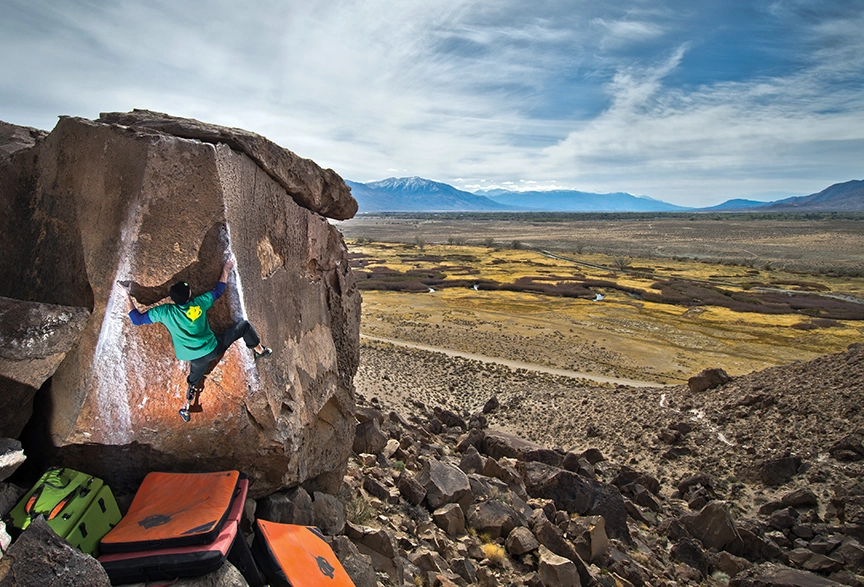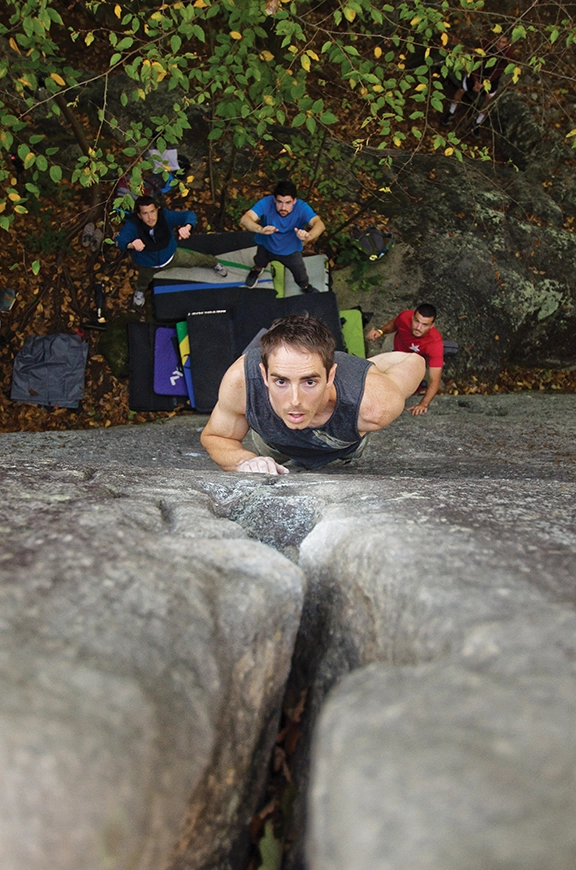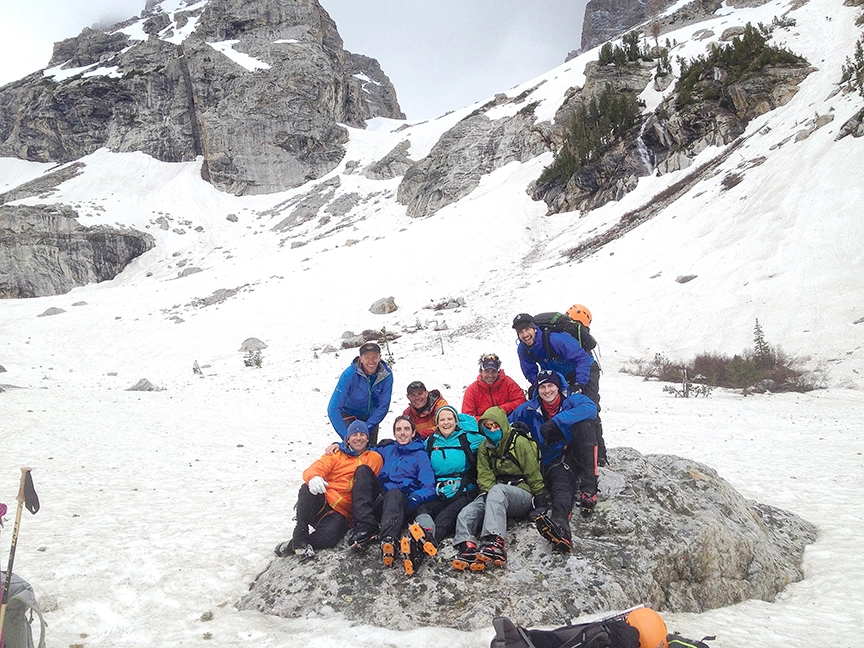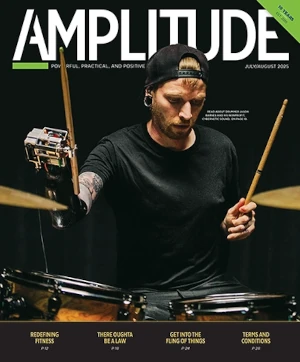
Happy Boulders, Bishop, California.
Photograph by Andrew Chao.
Climbing has contributed so much to my emotional, physical, and personal growth, and I’m thankful for the events that helped me find the sport during a transition period in my life. It has never been easy, but the journeys that offer the most rewards usually aren’t. I started climbing after reading about the Extremity Games (www.extremitygames.com), an adaptive sporting competition for those living with limb loss, limb difference, and other physical disabilities.
Over the years, climbing has taught me several things about getting more out of life, both in sports and in my day-to-day world.
Get out of your comfort zone!
Opportunities present themselves throughout our lives. Often, we don’t know where they might take us, and unless we open the door and pursue them, we will never find out. We may be the biggest obstacle that prevents us from embarking on these potentially life-enhancing journeys. We are creatures of habit and comfort, and trying new things, especially as we get older, is not in our DNA. Our brains will make up a million excuses why we can’t, and it takes conscious effort to break these habits and get out of our comfort zones. For every million reasons we believe we can’t do something, we only need one thing to make us believe we can. Once we take that first step to try something new, the rest starts to take care of itself.

territory at the Stone Fort,
Soddy-Daisy, Tennessee.
Photograph by Andrew Chao.
Embrace the unknown!
Every new activity or adventure brings the unfamiliar with it. When I first became an above-knee amputee, I could not run, I had never ridden a bike (even when I had two legs), and I didn’t know how to climb. Instead of fearing what we don’t know how to do, we must figure out how we can do it. Sometimes it might take a bit of ingenuity. Sometimes it might require the support of a team or group. It is by going forth into uncharted waters, however, that true growth can be achieved.
Find a way to make it happen!
Life is busy for all of us. As an athlete, I find myself training 15 to 20 hours a week, and working up to 60 hours a week at my job. I also serve on multiple boards and committees related to adaptive climbing. During one of my busiest workweeks of the year, and with a competition on the horizon, I received an unexpected deadline for my contribution to an adaptive climbing manual. As Benjamin Franklin was reported to have said, “If you want something done, ask a busy person.” Although we can’t always control what life throws at us, we can usually find a way to accomplish it—if we are willing to sacrifice.
Don’t be afraid of failure!
Regardless of what anybody says, failure is simply an invention of our own minds. We can define it and its importance to us. The key to success is not focusing on winning or losing but rather enjoying the journey and all the paths it might take us down.

group pauses to enjoy the journey.
Photograph courtesy of Prosthetic
and Orthotic Associates (POA)
I recently took a group of amputees to attempt to reach the summit of the Grand Teton (13,775 feet) in Wyoming. Our timeline gave us one shot at the summit, and ultimately weather and difficult conditions forced us to abandon our objective. The group was disappointed, but at that moment, in the middle of Garnet Canyon surrounded by towering rocks, we made the decision to celebrate what we had accomplished. We were thankful that this goal had brought us together in a beautiful place where we had never even imagined being. We no longer cared so much that we didn’t make it to the top; instead, we were excited that we were out there in the first place.
I have embraced both the successes and failures of the past. They have made me who I am today.
By Ronnie Dickson, CP
I’m first out of the tunnel for the final climb, and I feel the rush of the crowd as I walk up to the wall. I’m not nervous; instead, I’m excited to be doing what I love and representing my country. Present in the moment, I feel my fingers grip each hold, and I enjoy the way I move my body up the wall. Challenges present themselves at different sections, but I stay calm and find a way to maneuver through the difficult terrain. Ultimately, however, I tire and fall just two moves from the top. I’m satisfied with my effort, however, knowing that I gave all of myself to this endeavor. I don’t win on this night either, but as I watch the competitor from Spain reach the top, I’m happier than I have been in a long time because I’m lucky to have shared in this journey with so many others, and to have had the opportunity to be here in the first place. And it all started with the simple act of picking up a magazine, learning about adaptive sports, overcoming my fear of failure, and then walking through an open door. —International Federation of Sport Climbing (IFSC) Paraclimbing World Championship, Gijón, Spain, September 2014



